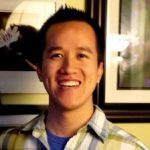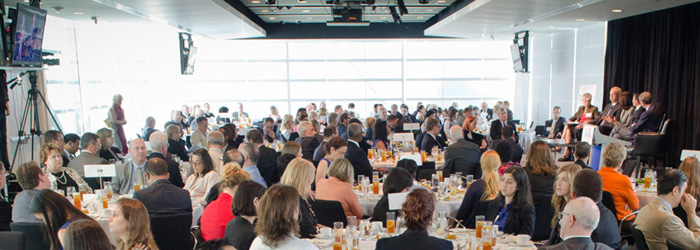This post is part of the Early Career Scientist Policy Subcommittee’s series on science policy fellowships.
Research!America sponsors a 3– 6-month science policy fellowship for recent PhD graduates. The Research!America alliance is made up of over 400 science organizations: from research institutions like Johns Hopkins to scientific societies like GSA to drug development companies like Merck. Based in Crystal City, Va, this fellowship focuses on biomedical and health services research, while giving fellows the opportunity to monitor policy issues, partake in self-directed projects related to science policy, and gain first-hand experience in policy-making by attending briefings on Capitol Hill.

Daniel Pham
I sat down with Daniel Pham, PhD, who was a fellow with Research!America. Daniel received his PhD from Johns Hopkins University and now works as the Public Affairs Manager for the American Society for Biochemistry and Molecular Biology (ASBMB).
Q: What drove you to pursue this fellowship?
It began with my passion for science communication. When I was a grad student, I tried to explain my research to my partner, who was an artist. After three hours of trying to explain what a neuron was to him, it left me feeling like I was bad at science communication. Through speaking with friends in my program, we realized this was a prevalent problem, and so we decided to start an organization called Project Bridge. This is an outreach group that connects scientists to the community around Baltimore through science cafés and demos at the farmers market. These experiences really drove my passion to communicate science and its importance not just with the public but also with policymakers.
Several staff members from Research!America came to Johns Hopkins to give a presentation on science advocacy, and we ended up creating a joint event with Project Bridge. This allowed me to develop a relationship with them before applying for the fellowship. I knew that if I wanted a career in science policy I needed more training, which is why the Science Policy Fellowship at Research!America seemed like the perfect opportunity.
Q: What was a typical day like as a fellow at Research!America?
A lot of it was spent learning what it meant to do science advocacy and science policy. During the fellowship, we spent a lot of time representing Research!America at events, briefings, and conferences. Beyond that, I helped research fact sheets that Research!America distributes to its members. These fact sheets show how research impacts society and improves health—they have to be updated annually.
This fellowship introduced me to some of the players in science advocacy, such as ASBMB, SfN, ACS, science research universities, and patient advocacy groups like the Lupus Foundation of America. It taught me about the techniques and tools that are used by advocates and policy professionals, including Hill briefings, member fact sheets, and meetings with congressional offices. It also gave me a good understanding of which are the important relationships we need to develop to make a difference, for example with lawmakers sitting on oversight and appropriations committees, governors and legislators acting at the state level, as well as university leadership and the federal agencies themselves.
Q: Was your work driven mostly by your own interests or by scientific trends and pressing legislation?
The work is mostly driven by current events. When I was a fellow, the science community was trying to address the opioid crisis. I attended many meetings and ended up developing that as part of my portfolio; I became the ‘opioid czar’. For the first time, I could truly see the whole spectrum of what it takes to do research, treat patients, and then make policy to influence treatment. That was a big learning experience for me because my PhD work was centered more on basic science research, and it was really interesting to shift gears to learn about improving health at the national level.
Q: How did your expectations differ from your actual experience at Research!America?
I didn’t expect it to be so fast paced! Many people I had met before coming in said that policy is really slow and you can shepherd a bill for a year, and even then nothing is guaranteed to happen. But when I was a fellow, it seemed like there were things happening all the time. I did not expect to learn so much right away!
Q: How do you recommend preparing for policy fellowships?
One thing I highly recommend to people who are interested in doing science policy is to find avenues to practice even as a graduate student, because it’s hard to grasp without any experience. There are multiple ways of doing that, such as reaching out to the government relations office at your institution or creating your own advocacy activities. Make phone calls, send emails, ask questions, and even just go on Twitter. Now is the time to start making and building connections!
About the author:
![]() Thomas Clements received his PhD at Rice University in 2018 and will be transitioning to a career as a Lecturer in the Biological Sciences Department at Vanderbilt University starting in Fall 2018. He is also a member of the Early Career Scientist Policy and the Education Committee at the Genetics Society of America. His research centers on improving CRISPR-Cas9 gene editing in zebrafish, and he is also passionate about science literacy and inspiring the next generation of scientists to pursue careers that align with their interests.
Thomas Clements received his PhD at Rice University in 2018 and will be transitioning to a career as a Lecturer in the Biological Sciences Department at Vanderbilt University starting in Fall 2018. He is also a member of the Early Career Scientist Policy and the Education Committee at the Genetics Society of America. His research centers on improving CRISPR-Cas9 gene editing in zebrafish, and he is also passionate about science literacy and inspiring the next generation of scientists to pursue careers that align with their interests.
[wysija_form id=”1″]































